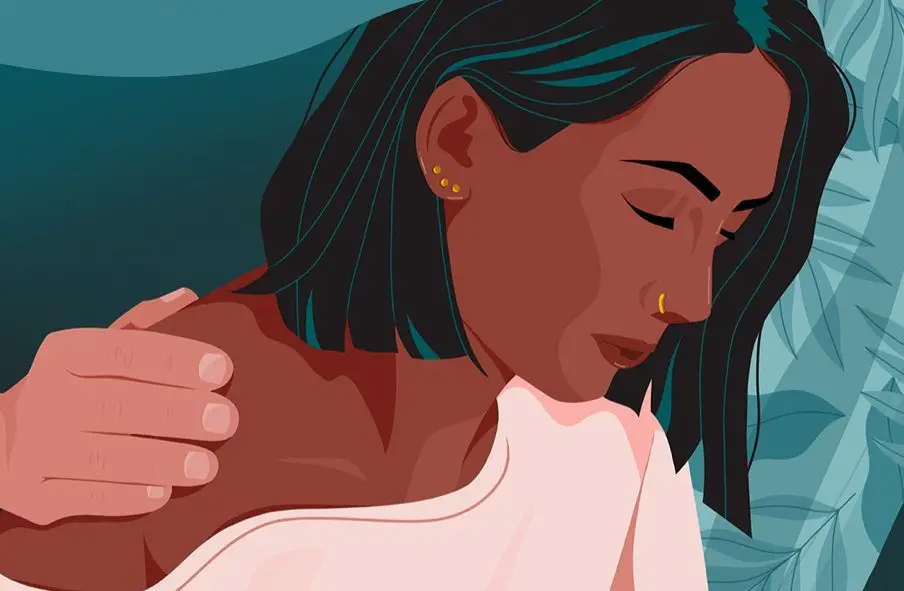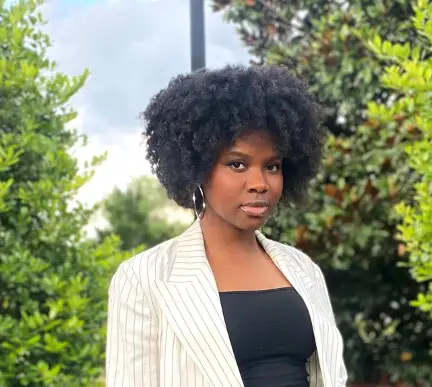Content Warning: Suicide
“Helene, you know if you kill yourself, you are going to go to hell?” were my immigrant mother’s exact words when I told her I felt suicidal. I wanted comfort; I desperately wanted to be told everything would be okay. However, in my case, feeling the blues, being cheerless, would not allow my mother to see my pain. When I asked if I could see a therapist, she said, “Therapists have their own problem. You pray to God so he can help you.”
Who wants to go to hell because they killed themselves? Let’s hope nobody, because you have dealt with enough worldly pain; the last thing anyone would want is to die knowing they are going to hell. If you’re anything like Helene, you grew up with anxiety and depression but had parents who were not educated on these illnesses. An immigrant child learns to cope with their emotions and pray and hope that they will feel better tomorrow. Do you want to know why? Well, it’s because you have hope for the future, and seeing the sun and being able to feel the heat on your skin gives hope and reminds you to hold on a little longer.
Being an immigrant is not easy, especially considering the years it takes a person to adjust to a different culture. Imagine experiencing culture shock, being bullied for being different, and having parents that don’t understand you. In situations like this, a child has the right to seek attention and comfort, but it’s hard to ask for it knowing how busy your parents are and that they are having a hard time too.
The Mind of a Depressed Person
When a person is depressed, they are living in their minds. Nothing matters in the moment when they have a major depressive episode because of how dark their world seems. The depressed person starts to believe the world is a better place without them. Hope is gone during this time and the only thing they think about is how miserable they are.
My immigrant mother does not understand what depression genuinely means or how brokenhearted I felt. Instead of supporting Helene, she would say things relating to religions or demons. She would say something like, “If you’re not feeling well, pray about it.” “Praying about it surely did not help. I had nights I cried, wrote in my notebook, felt empty and hopeless at the same time,” Helene replied.
At some point in Helene’s life, she hoped someone would see that she was not okay and help. However, nobody knows what is going on with anyone unless they speak about their feelings. Helene knew she had a teacher that cared about her, and when she expressed her feelings to her, she offered guidance. She started seeing a counselor a year after the conversation she had with her teacher. She went through the journey alone without her family’s support because she could not depend on them.
How To Change These Patterns
Immigrant parents often don’t talk about mental health, or else they dismiss it as something unimportant. If you’re lucky enough, you have parents that care, but many don’t. Nevertheless, that does not make them bad people or bad parents; it makes them uneducated about the topic. They raise you the same way they grew up, not realizing how generations change and that the world is not the same anymore. That being said, that should not make someone give up on their mental health because they are surrounded by people that don’t care.
Most importantly, remember that if you take care of yourself, you are helping the world become a better place. If you’re a student struggling with mental health, reach out to the school counselor for help. Always remember to speak your truth. Your information is safe with them due to a patient confidentiality clause. Also, if it helps, remember that the person you’re speaking to is a stranger and probably won’t ever meet the people you speak of. Moreover, if you’re an adult and out of school or the school you attend does not offer the service, try online therapy. Aside from getting help from others, what can you do for yourself when feeling low? The answer is self-love, self-care, and self-everything you must do to help you be happy for yourself.
Tips on Practicing Self-Love
What is self-love? According to the Brain and Behavior Research Foundation, “Self-love is a state of appreciation for oneself that grows from actions that support our physical, psychological and spiritual growth. Self-love means having a high regard for your own well-being and happiness.” Everyone practices self-love differently depending on their needs, which is essential to acknowledge.
For instance, the website gives a list of what it means: “Talking to and about yourself with love, prioritizing yourself, giving yourself a break from self-judgment and trusting yourself.” Ways to practice self-love include being mindful of thoughts, treating yourself like a friend, and being kind and gentle. Self-love is self-care. This includes taking a shower or a bath and not overworking yourself and resting because your body needs it. In times like this, journaling, watching a movie, reading, or exercising are helpful and healthy ways to take care of yourself.
Know that you’re not alone, and the world needs you. Your family, friends, boyfriend, or girlfriend needs you, so don’t give up and get the help you need to get better. The goal is not to be perfect and not have mental issues; the goal is to learn how to deal with mental problems when they come because it is a continuous cycle that won’t end.
*** If you or anyone you know are thinking of self-harm, call the National Suicide Prevention Lifeline: 800-273-8255. In case of an emergency and a suicide risk call 911. ***

















